 Nathaniel Bachrach received his PhD in Mechanical Engineering from Columbia University where his doctoral research focused on the influence of tissue mechanics on regeneration. He spent five years at the Orthopaedic Research Laboratory at Columbia-Presbyterian Medical Center before entering industry, first at Organogenesis- an early pioneer in the commercialization of regenerative medicine.
Nathaniel Bachrach received his PhD in Mechanical Engineering from Columbia University where his doctoral research focused on the influence of tissue mechanics on regeneration. He spent five years at the Orthopaedic Research Laboratory at Columbia-Presbyterian Medical Center before entering industry, first at Organogenesis- an early pioneer in the commercialization of regenerative medicine.
Nathaniel’s 20 year career is focused on leading R&D organizations with the goal of translating novel regenerative technologies to viable clinical products. He currently holds the position of Vice President of R&D for LifeCell Corporation where he spent the last 10 years advancing their industry leading accellular dermal products as well as building LifeCell’s leadership position in clinically relevant adipose technologies.
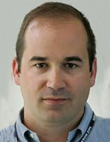
Matthew Becker is a Professor in the Departments of Polymer Science and Biomedical Engineering at The University of Akron. His research group focuses on synthesizing highly functional macromolecular materials for medical device and regenerative medicine applications. He is the Director the industrially-focused Akron Functional Materials Center and also leads the Biomaterials efforts of the Austen Bioinnovation Institute in Akron. Prior to joining UA, Dr. Becker was a project leader and NRC postdoctoral fellow in the Polymers Division of the National Institute of Standards and Technology (NIST). He also led the biomaterials efforts of NIST Combinatorial Methods Center and facilitated Polymers Division interactions with the research divisions of the U.S. FDA. Dr. Becker received his PhD in Organic Chemistry in 2003 from Washington University in St. Louis under the supervision of Professor Karen L. Wooley where he was an NIH Chemistry-Biology Interface Training Fellow. He received his BS in Chemistry in 1998 from Northwest Missouri State University.
 Mohit Bhatia is the Senior Director of R & D, Tissue Therapeutics at Celgene Cellular Therapeutics. He received his PhD in Biochemistry from New York University. He did his Post-Doctoral training at the Rockefeller University and Harvard Medical School. Dr. Bhatia is responsible for the Research and Development of placental tissue-based biomaterial products at Celgene Cellular Therapeutics.
Mohit Bhatia is the Senior Director of R & D, Tissue Therapeutics at Celgene Cellular Therapeutics. He received his PhD in Biochemistry from New York University. He did his Post-Doctoral training at the Rockefeller University and Harvard Medical School. Dr. Bhatia is responsible for the Research and Development of placental tissue-based biomaterial products at Celgene Cellular Therapeutics.
 Curtis L. Cetrulo, Jr. is the Senior Investigator and Head of the Vascularized Composite Tissue Allotransplantation Laboratory at the Transplantation Biology Research Center, Massachusetts General Hospital. He graduated from Stanford University in 1992 and Tufts University School of Medicine in 1999. Dr. Cetrulo practiced reconstructive microsurgery and hand surgery at the University of Southern California Medical Center and the Shriners Hospital for Children-Los Angeles where he performed pediatric reconstructive microsurgery, burn reconstruction, cleft lip and palate surgery, and pediatric hand surgery. In 2009, Dr. Cetrulo joined the Division of Plastic and Reconstructive Surgery of the Massachusetts General Hospital and the staff of Shriners Hospital for Children-Boston. His laboratory is investigating tolerance induction strategies for vascularized composite tissue allografts (VCA) in the immunogenetically-defined MGH miniature swine model. Current research efforts are directed toward use of mixed hematopoietic chimerism to induce transplantation tolerance to VCA and toward exploring the immunologic mechanisms involved in tolerance and rejection of the skin component of VCA.
Curtis L. Cetrulo, Jr. is the Senior Investigator and Head of the Vascularized Composite Tissue Allotransplantation Laboratory at the Transplantation Biology Research Center, Massachusetts General Hospital. He graduated from Stanford University in 1992 and Tufts University School of Medicine in 1999. Dr. Cetrulo practiced reconstructive microsurgery and hand surgery at the University of Southern California Medical Center and the Shriners Hospital for Children-Los Angeles where he performed pediatric reconstructive microsurgery, burn reconstruction, cleft lip and palate surgery, and pediatric hand surgery. In 2009, Dr. Cetrulo joined the Division of Plastic and Reconstructive Surgery of the Massachusetts General Hospital and the staff of Shriners Hospital for Children-Boston. His laboratory is investigating tolerance induction strategies for vascularized composite tissue allografts (VCA) in the immunogenetically-defined MGH miniature swine model. Current research efforts are directed toward use of mixed hematopoietic chimerism to induce transplantation tolerance to VCA and toward exploring the immunologic mechanisms involved in tolerance and rejection of the skin component of VCA.
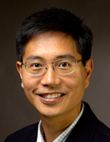 Christopher S. Chen is a Professor of Biomedical Engineering at Boston University and the Harvard Wyss Institute for Biologically Inspired Engineering, has been instrumental in developing engineered cellular microenvironments to understand how cells build tissues. He serves as a fellow for the American Institute for Medical and Biological Engineering, member of the Faculty of 1000, Editorial Board for Science Translational Medicine, Annuals Reviews of Cell and Developmental Biology, and Developmental Cell. He received his Ph.D. from M.I.T., and M.D. from Harvard Medical School. He was founding director of the Penn Center for Engineering Cells and Regeneration before his current appointment.
Christopher S. Chen is a Professor of Biomedical Engineering at Boston University and the Harvard Wyss Institute for Biologically Inspired Engineering, has been instrumental in developing engineered cellular microenvironments to understand how cells build tissues. He serves as a fellow for the American Institute for Medical and Biological Engineering, member of the Faculty of 1000, Editorial Board for Science Translational Medicine, Annuals Reviews of Cell and Developmental Biology, and Developmental Cell. He received his Ph.D. from M.I.T., and M.D. from Harvard Medical School. He was founding director of the Penn Center for Engineering Cells and Regeneration before his current appointment.
 Marcus Cicerone is a Project Leader in the Polymers Division of the National Institute of Standards and Technology. He received his Ph.D. in Physical Chemistry at the University of Wisconson-Madison. Over the past 9 years he has led a team of NIST staff and postdocs to many pioneering accomplishments that have laid the foundation for high-speed spectroscopic imaging using broadband coherent Raman scattering. In 2004, his was the first group to demonstrate broadband coherent anti-Stokes Raman scattering (BCARS) microscopy. Since then, he has introduced numerous hardware and software improvements to the methodology. Among these, his group has engineered continuum laser pulses that were far superior for BCARS to those previously available and also devised a pulse-shaping approach that allowed us to obtain background-free (pure Raman) signal. He later invented a mathematical approach based on a Kramers-Kronig transform for retrieving the pure Raman spectrum directly from the raw CARS signal, making his the first group to obtain quantitative vibrational fingerprint spectra using coherent Raman methods in biological tissues or cells, and showing that BCARS was then 50-fold faster than spontaneous Raman imaging. During the same period Dr. Cicerone has directed a multi-PI R01 grant for stabilizing proteins in biopharmaceutical and drug delivery applications.
Marcus Cicerone is a Project Leader in the Polymers Division of the National Institute of Standards and Technology. He received his Ph.D. in Physical Chemistry at the University of Wisconson-Madison. Over the past 9 years he has led a team of NIST staff and postdocs to many pioneering accomplishments that have laid the foundation for high-speed spectroscopic imaging using broadband coherent Raman scattering. In 2004, his was the first group to demonstrate broadband coherent anti-Stokes Raman scattering (BCARS) microscopy. Since then, he has introduced numerous hardware and software improvements to the methodology. Among these, his group has engineered continuum laser pulses that were far superior for BCARS to those previously available and also devised a pulse-shaping approach that allowed us to obtain background-free (pure Raman) signal. He later invented a mathematical approach based on a Kramers-Kronig transform for retrieving the pure Raman spectrum directly from the raw CARS signal, making his the first group to obtain quantitative vibrational fingerprint spectra using coherent Raman methods in biological tissues or cells, and showing that BCARS was then 50-fold faster than spontaneous Raman imaging. During the same period Dr. Cicerone has directed a multi-PI R01 grant for stabilizing proteins in biopharmaceutical and drug delivery applications.
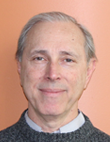 David I. Devore is an Associate Research Professor in the New Jersey Center for Biomaterials (NJCBM) at Rutgers University. He holds a B.S. in Biology and Ph.D. in Physical Chemistry from Rutgers, and he did postdoctoral research in neurophysiology at Columbia University and in biophysical chemistry at the University of California, Berkeley. He then spent 28 years in industrial research management, most recently as Vice President of Research at Ciba Specialty Chemicals. In 2003, he joined the NJCBM as an Associate Research Professor and Chief Operating Officer for the Rutgers-Cleveland Clinic Consortium of the Armed Forces Institute of Regenerative Medicine. In 2010, he moved to the U.S. Army Institute of Surgical Research to pursue his interests in extremity trauma and regenerative medicine, and in 2014 he returned to NJCBM to build industrially oriented biomedical device programs.
David I. Devore is an Associate Research Professor in the New Jersey Center for Biomaterials (NJCBM) at Rutgers University. He holds a B.S. in Biology and Ph.D. in Physical Chemistry from Rutgers, and he did postdoctoral research in neurophysiology at Columbia University and in biophysical chemistry at the University of California, Berkeley. He then spent 28 years in industrial research management, most recently as Vice President of Research at Ciba Specialty Chemicals. In 2003, he joined the NJCBM as an Associate Research Professor and Chief Operating Officer for the Rutgers-Cleveland Clinic Consortium of the Armed Forces Institute of Regenerative Medicine. In 2010, he moved to the U.S. Army Institute of Surgical Research to pursue his interests in extremity trauma and regenerative medicine, and in 2014 he returned to NJCBM to build industrially oriented biomedical device programs.
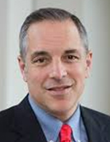 Elazer R. Edelman is the Thomas D. and Virginia W. Cabot Professor of Health Sciences and Technology at MIT, Professor of Medicine at Harvard Medical School, and Senior Attending Physician in the coronary care unit at the Brigham and Women's Hospital in Boston. He and his laboratory have pioneered basic findings in vascular biology and the development and assessment of biotechnology. Dr. Edelman directs the Harvard-MIT Biomedical Engineering Center (BMEC), dedicated to applying the rigors of the physical sciences to elucidate fundamental biologic processes and mechanisms of disease. BMEC programs span a wide range of disciplines, with its resources made available to investigators from MIT and Harvard. Dr. Edelman received Bachelor of Science degrees in Bioelectrical Engineering and in Applied Biology, a Masters of Science degree in Electrical Engineering and Computer Sciences from MIT, and a Ph.D. in Medical Engineering and Medical Physics from MIT, and an M.D. degree from Harvard Medical School. His graduate thesis work, under the direction of Prof. Robert Langer, defined the mathematics of regulated and controlled drug delivery systems. After internal medicine training and clinical fellowship in Cardiovascular Medicine at the BWH he spent six years as a research fellow in the Department of Pathology at Harvard Medical School with Prof. Morris J. Karnovsky working on the biology of vascular repair.
Elazer R. Edelman is the Thomas D. and Virginia W. Cabot Professor of Health Sciences and Technology at MIT, Professor of Medicine at Harvard Medical School, and Senior Attending Physician in the coronary care unit at the Brigham and Women's Hospital in Boston. He and his laboratory have pioneered basic findings in vascular biology and the development and assessment of biotechnology. Dr. Edelman directs the Harvard-MIT Biomedical Engineering Center (BMEC), dedicated to applying the rigors of the physical sciences to elucidate fundamental biologic processes and mechanisms of disease. BMEC programs span a wide range of disciplines, with its resources made available to investigators from MIT and Harvard. Dr. Edelman received Bachelor of Science degrees in Bioelectrical Engineering and in Applied Biology, a Masters of Science degree in Electrical Engineering and Computer Sciences from MIT, and a Ph.D. in Medical Engineering and Medical Physics from MIT, and an M.D. degree from Harvard Medical School. His graduate thesis work, under the direction of Prof. Robert Langer, defined the mathematics of regulated and controlled drug delivery systems. After internal medicine training and clinical fellowship in Cardiovascular Medicine at the BWH he spent six years as a research fellow in the Department of Pathology at Harvard Medical School with Prof. Morris J. Karnovsky working on the biology of vascular repair.
 Miroslawa El Fray is the head of the Division of Biomaterials and Microbiological Technologies and director of the West Pomeranian Centre of Advanced Technologies, and director of Polymer Institute. She graduated from Szczecin University of Technology, where she also received her PhD in 1996. She was a post-doc at the Technical University Hamburg-Harburg, and scientific researcher at the University Bayreuth, Germany (2000-2003). She received her DSc at the Warsaw University of Technology in 2004. She received the Royal Society fellowship in 2005 at the Imperial College London, UK. She is an author and co-author of over 200 scientific papers. Her scientific background is on the polymer synthesis and characterization, biodegradation and modification towards specific biomedical applications (including polymers for artificial heart, heart patches, elastomeric and photocurable networks, and nanocomposites). Currently, she is an associate professor at the West Pomeranian University of Technology, Szczecin, contributing to research and education in the field of polymer chemistry, nanotechnology, including nanocomposites, and polymeric biomaterials.
Miroslawa El Fray is the head of the Division of Biomaterials and Microbiological Technologies and director of the West Pomeranian Centre of Advanced Technologies, and director of Polymer Institute. She graduated from Szczecin University of Technology, where she also received her PhD in 1996. She was a post-doc at the Technical University Hamburg-Harburg, and scientific researcher at the University Bayreuth, Germany (2000-2003). She received her DSc at the Warsaw University of Technology in 2004. She received the Royal Society fellowship in 2005 at the Imperial College London, UK. She is an author and co-author of over 200 scientific papers. Her scientific background is on the polymer synthesis and characterization, biodegradation and modification towards specific biomedical applications (including polymers for artificial heart, heart patches, elastomeric and photocurable networks, and nanocomposites). Currently, she is an associate professor at the West Pomeranian University of Technology, Szczecin, contributing to research and education in the field of polymer chemistry, nanotechnology, including nanocomposites, and polymeric biomaterials.
 Charles Gatt obtained his B.S. in Chemical Engineering from Lafayette College in Easton, PA in 1985, and obtained his M.D. in 1989 from the UMDNJ-Robert Wood Johnson Medical School. After his Orthopaedic Surgery residency at UMDNJ in 1994, and a one-year Orthopaedic Sports Medicine Fellowship at the Cleveland Clinic, Dr. Gatt began practicing as an orthopaedic surgeon, and is currently an Associate Professor, and residency director, of Orthopaedic Surgery at Rutgers-RWJMS.
Charles Gatt obtained his B.S. in Chemical Engineering from Lafayette College in Easton, PA in 1985, and obtained his M.D. in 1989 from the UMDNJ-Robert Wood Johnson Medical School. After his Orthopaedic Surgery residency at UMDNJ in 1994, and a one-year Orthopaedic Sports Medicine Fellowship at the Cleveland Clinic, Dr. Gatt began practicing as an orthopaedic surgeon, and is currently an Associate Professor, and residency director, of Orthopaedic Surgery at Rutgers-RWJMS.
 Ashutosh Goel is an Assistant Professor at Department of Materials Science and Engineering at Rutgers University. His research is mainly directed towards understanding structure-solubility relationships in glasses with emphasis on design of glasses with controlled dissolution behavior for their application in bone regeneration and tissue engineering. Author of more than 50 research articles and one patent (sold to a biomaterials company in Europe), Dr. Goel is a member of the Editorial board of Journal of Nanotechnology and Smart Materials. At Rutgers, his position is being co-funded by Corning and he is working in close collaboration with the glass research group at Corning Inc.
Ashutosh Goel is an Assistant Professor at Department of Materials Science and Engineering at Rutgers University. His research is mainly directed towards understanding structure-solubility relationships in glasses with emphasis on design of glasses with controlled dissolution behavior for their application in bone regeneration and tissue engineering. Author of more than 50 research articles and one patent (sold to a biomaterials company in Europe), Dr. Goel is a member of the Editorial board of Journal of Nanotechnology and Smart Materials. At Rutgers, his position is being co-funded by Corning and he is working in close collaboration with the glass research group at Corning Inc.
 Teja Guda is currently Assistant Professor of Research in the Biomedical Engineering Department at the University of Texas at San Antonio. Prior to this, he was an Armed Forces Institute of Regenerative Medicine fellow at Wake Forest University and the US Army Institute of Surgical Research; focusing on biomaterials development, drug delivery, and micro-computed tomography characterization for regenerative medicine. His past research focused on the development of hydroxyapatite scaffolds and composites to promote bone regeneration, from the perspective of architectural influences on bone in-growth. Dr. Guda’s current areas of research are developing bioreactor technologies for tissue engineering, vascularization in bone and skeletal muscle, development of appropriate preclinical models and the effects of competitive biochemical and biophysical stimuli on tissue differentiation. He is also the Director of the Micro-CT and mechanical testing core facilities at the University of Texas at San Antonio and directs their industrial internship program for undergraduates.
Teja Guda is currently Assistant Professor of Research in the Biomedical Engineering Department at the University of Texas at San Antonio. Prior to this, he was an Armed Forces Institute of Regenerative Medicine fellow at Wake Forest University and the US Army Institute of Surgical Research; focusing on biomaterials development, drug delivery, and micro-computed tomography characterization for regenerative medicine. His past research focused on the development of hydroxyapatite scaffolds and composites to promote bone regeneration, from the perspective of architectural influences on bone in-growth. Dr. Guda’s current areas of research are developing bioreactor technologies for tissue engineering, vascularization in bone and skeletal muscle, development of appropriate preclinical models and the effects of competitive biochemical and biophysical stimuli on tissue differentiation. He is also the Director of the Micro-CT and mechanical testing core facilities at the University of Texas at San Antonio and directs their industrial internship program for undergraduates.
 Scott Guelcher is an Associate Professor of Chemical and Biomolecular Engineering at Vanderbilt University in Nashville, TN. Prior to his appointment at Vanderbilt, he was a Senior Associate Scientist at Bayer Corporation and an NIH/NRSA Fellow in the Department of Biomedical Engineering at Carnegie Mellon University. Professor Guelcher’s research focuses on the design of injectable grafts and drug delivery systems for regeneration of bone and cutaneous tissue defects, as well as biomimetic scaffolds for investigating the effects of the microenvironment on establishment of tumors in bone. He is an author of 56 publications and an inventor on twenty patents and published patent applications.
Scott Guelcher is an Associate Professor of Chemical and Biomolecular Engineering at Vanderbilt University in Nashville, TN. Prior to his appointment at Vanderbilt, he was a Senior Associate Scientist at Bayer Corporation and an NIH/NRSA Fellow in the Department of Biomedical Engineering at Carnegie Mellon University. Professor Guelcher’s research focuses on the design of injectable grafts and drug delivery systems for regeneration of bone and cutaneous tissue defects, as well as biomimetic scaffolds for investigating the effects of the microenvironment on establishment of tumors in bone. He is an author of 56 publications and an inventor on twenty patents and published patent applications.
 Michael Jaffe is a Research Professor of Biomedical Engineering, Chemistry and Materials Science at the New Jersey Institute of Technology and the Director of the Medical Device Concept Laboratory. Previously, he was a Research Fellow at the Hoechst Celanese Corporation, which he joined upon completion of his Ph.D. in Chemistry from Rensselaer Polytechnic Institute in 1967. His work has focused on understanding the structure-property relationships of polymers and related materials, biomaterials, fiber processing, high performance materials, the application of biological paradigms to materials design and the translation of new technology to commercial reality. He is a past member of the National Materials Advisory Board, is a past chairman of the PolymericMaterials: Science and Engineering Division of the American Chemical Society and has served on panels of the NSF, DOD, DOE, NASA and NIST. He has authored more than 70 technical publications, fifteen book chapters and 15 patents. He is a fellow of IUPAC, AAAS, PMSE and NATAS, a National Associate of the National Research Council and was the recipient of the 1995 Thomas Alva Edison Patent Award presented by the Research and Development Council of New Jersey.
Michael Jaffe is a Research Professor of Biomedical Engineering, Chemistry and Materials Science at the New Jersey Institute of Technology and the Director of the Medical Device Concept Laboratory. Previously, he was a Research Fellow at the Hoechst Celanese Corporation, which he joined upon completion of his Ph.D. in Chemistry from Rensselaer Polytechnic Institute in 1967. His work has focused on understanding the structure-property relationships of polymers and related materials, biomaterials, fiber processing, high performance materials, the application of biological paradigms to materials design and the translation of new technology to commercial reality. He is a past member of the National Materials Advisory Board, is a past chairman of the PolymericMaterials: Science and Engineering Division of the American Chemical Society and has served on panels of the NSF, DOD, DOE, NASA and NIST. He has authored more than 70 technical publications, fifteen book chapters and 15 patents. He is a fellow of IUPAC, AAAS, PMSE and NATAS, a National Associate of the National Research Council and was the recipient of the 1995 Thomas Alva Edison Patent Award presented by the Research and Development Council of New Jersey.
 Abraham Joy obtained his Ph.D. in chemistry from Tulane University, working under the mentorship of Prof. V. Ramamurthy. Following his doctoral work, he carried out postdoctoral work at the Georgia Tech in Prof. Gary Schuster's lab. Subsequently, he was an NIH Ruth Kirschstein postdoctoral fellow at Rutgers University and Univ. Pennsylvania working with Profs. Joachim Kohn and Christopher Chen. During this time, he worked on designing biomaterials for modulating cellular functions. In 2010 he joined the Department of Polymer Science at The University of Akron as an assistant professor. The current focus of his research group is to develop materials for biomedical applications. The Joy Lab is engaged in developing 1) photoresponsive materials 2) multivalent biomaterials, and 3) self-assembled polymers.
Abraham Joy obtained his Ph.D. in chemistry from Tulane University, working under the mentorship of Prof. V. Ramamurthy. Following his doctoral work, he carried out postdoctoral work at the Georgia Tech in Prof. Gary Schuster's lab. Subsequently, he was an NIH Ruth Kirschstein postdoctoral fellow at Rutgers University and Univ. Pennsylvania working with Profs. Joachim Kohn and Christopher Chen. During this time, he worked on designing biomaterials for modulating cellular functions. In 2010 he joined the Department of Polymer Science at The University of Akron as an assistant professor. The current focus of his research group is to develop materials for biomedical applications. The Joy Lab is engaged in developing 1) photoresponsive materials 2) multivalent biomaterials, and 3) self-assembled polymers.
 Hilton Kaplan is a Reconstructive Plastic Surgeon and Biomedical Engineer with research interests in neurosciences (neural prosthetics and implantable man-machine interfaces), and tissue engineering (decellularized composite tissues for limb and face allotransplantation). He is an Associate Research Professor in the NJ Center for Biomaterials at Rutgers University, and an Adjunct Professor in Regulatory Science at the University of Southern California. Dr. Kaplan has held various clinical and research positions across academia and industry, including Senior Medical Director at Allergan (Fortune 500 healthcare) and Vice President of Clinical Sciences at LifeCell (pioneer in decellularizing dermis). He is a founding board member of the non-profits Grossman Burn Foundation, and Look at Us Alliance for Craniofacial Differences.
Hilton Kaplan is a Reconstructive Plastic Surgeon and Biomedical Engineer with research interests in neurosciences (neural prosthetics and implantable man-machine interfaces), and tissue engineering (decellularized composite tissues for limb and face allotransplantation). He is an Associate Research Professor in the NJ Center for Biomaterials at Rutgers University, and an Adjunct Professor in Regulatory Science at the University of Southern California. Dr. Kaplan has held various clinical and research positions across academia and industry, including Senior Medical Director at Allergan (Fortune 500 healthcare) and Vice President of Clinical Sciences at LifeCell (pioneer in decellularizing dermis). He is a founding board member of the non-profits Grossman Burn Foundation, and Look at Us Alliance for Craniofacial Differences.
 Bozena Michniak-Kohn is a Professor of Pharmaceutics at the Ernest Mario School of Pharmacy and is Director of the Center for Dermal Research (CDR) and Michniak Laboratory for Drug Delivery (LDD) of the NJ Center for Biomaterials (NJCBM), as well as Project Leader, FDA Liaison and Steering Committee Member of the $15M NSF Engineering Research Center (ERC). Previously (2000-2005) she was at the Dept. of Pharmacology & Physiology, University of Medicine and Dentistry of NJ- NJ Medical School (Newark) & was Director of the Laboratory for Drug Delivery for NJCBM-Newark. She obtained her Ph.D. in Pharmacology in 1980 from Leicester Polytechnic, Leicester, U.K now renamed the DeMontfort University. Postdoctoral experience was gained with Profs. N. Bodor (University of Florida) and B. Barry (University of Bradford, U.K). She returned in 1986 to the U.S. as Assistant Professor, College of Pharmacy, University of South Carolina-USC, Columbia SC. In 1998 she became tenured full Professor and Director of the Transdermal and Topical Drug Delivery Laboratory at USC.
Bozena Michniak-Kohn is a Professor of Pharmaceutics at the Ernest Mario School of Pharmacy and is Director of the Center for Dermal Research (CDR) and Michniak Laboratory for Drug Delivery (LDD) of the NJ Center for Biomaterials (NJCBM), as well as Project Leader, FDA Liaison and Steering Committee Member of the $15M NSF Engineering Research Center (ERC). Previously (2000-2005) she was at the Dept. of Pharmacology & Physiology, University of Medicine and Dentistry of NJ- NJ Medical School (Newark) & was Director of the Laboratory for Drug Delivery for NJCBM-Newark. She obtained her Ph.D. in Pharmacology in 1980 from Leicester Polytechnic, Leicester, U.K now renamed the DeMontfort University. Postdoctoral experience was gained with Profs. N. Bodor (University of Florida) and B. Barry (University of Bradford, U.K). She returned in 1986 to the U.S. as Assistant Professor, College of Pharmacy, University of South Carolina-USC, Columbia SC. In 1998 she became tenured full Professor and Director of the Transdermal and Topical Drug Delivery Laboratory at USC.
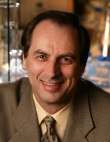 Joachim Kohn is a Board of Governors Professor of Chemistry and Chemical Biology at Rutgers, The State University of New Jersey. He is the founding director of the New Jersey Center for Biomaterials, a network-based organization that focuses on design, synthesis, characterization, and fabrication of new materials for regenerative medicine, tissue engineering and drug delivery. He has pioneered the use of combinatorial and computational methods for the optimization of biomaterials for specific medical applications and is known for his seminal work on “pseudo-poly(amino acid)s”. Joachim Kohn is the principal investigator of an NIH funded biomedical technology resource program, and NIH-funded postdoctoral training program, and of the 15-institution, Rutgers-led consortium within the Armed Forces Institute of Regenerative Medicine. He has published over 300 scientific manuscripts and reviews and holds 46 patents. He is the recipient of the 2003 Clemson Award for Basic Science of the Society for Biomaterials. In 2007, he was inducted into the New Jersey High-Tech Hall of Fame and he has twice received the Thomas Alva Edison Patent Award for best patent in New Jersey.
Joachim Kohn is a Board of Governors Professor of Chemistry and Chemical Biology at Rutgers, The State University of New Jersey. He is the founding director of the New Jersey Center for Biomaterials, a network-based organization that focuses on design, synthesis, characterization, and fabrication of new materials for regenerative medicine, tissue engineering and drug delivery. He has pioneered the use of combinatorial and computational methods for the optimization of biomaterials for specific medical applications and is known for his seminal work on “pseudo-poly(amino acid)s”. Joachim Kohn is the principal investigator of an NIH funded biomedical technology resource program, and NIH-funded postdoctoral training program, and of the 15-institution, Rutgers-led consortium within the Armed Forces Institute of Regenerative Medicine. He has published over 300 scientific manuscripts and reviews and holds 46 patents. He is the recipient of the 2003 Clemson Award for Basic Science of the Society for Biomaterials. In 2007, he was inducted into the New Jersey High-Tech Hall of Fame and he has twice received the Thomas Alva Edison Patent Award for best patent in New Jersey.
 Robert A. Latour received his B.S. degree in Chemical Engineering from the University of Virginia in 1979, following which he worked for Amoco Oil Co. as a refinery operations engineer in Yorktown, VA for five years. He returned to graduate school in the Department of Bioengineering at the University of Pennsylvania where he earned his M.S. (1986) and Ph.D. (1989) degrees in Bioengineering with focus on biomaterials. Prof. Latour then accepted an assistant professor position in the Department of Bioengineering at Clemson University beginning in the fall of 1989, where he currently holds an endowed professorship position as the McQueen-Quattlebaum Professor of Engineering in Bioengineering. Prof. Latour’s research program at Clemson University focuses on the study of the thermodynamics of protein-surface interactions and the development of both experimental and molecular simulation methods to characterize these interactions at the atomic level. The long term goal of his research program is to proactively control the bioactive state of adsorbed proteins and subsequent cellular responses to biomaterials through surface design. He is the author or co-author of nine book chapters, 76 journal publications, more than a hundred conference abstracts, and holds seven patents.
Robert A. Latour received his B.S. degree in Chemical Engineering from the University of Virginia in 1979, following which he worked for Amoco Oil Co. as a refinery operations engineer in Yorktown, VA for five years. He returned to graduate school in the Department of Bioengineering at the University of Pennsylvania where he earned his M.S. (1986) and Ph.D. (1989) degrees in Bioengineering with focus on biomaterials. Prof. Latour then accepted an assistant professor position in the Department of Bioengineering at Clemson University beginning in the fall of 1989, where he currently holds an endowed professorship position as the McQueen-Quattlebaum Professor of Engineering in Bioengineering. Prof. Latour’s research program at Clemson University focuses on the study of the thermodynamics of protein-surface interactions and the development of both experimental and molecular simulation methods to characterize these interactions at the atomic level. The long term goal of his research program is to proactively control the bioactive state of adsorbed proteins and subsequent cellular responses to biomaterials through surface design. He is the author or co-author of nine book chapters, 76 journal publications, more than a hundred conference abstracts, and holds seven patents.
 Jennifer A. Lewis recently joined the faculty of the School of Engineering and Applied Sciences and the Wyss Institute for Biologically Inspired Engineering at Harvard University. An innovative pioneer in 3D printing, she leads a vibrant research group that creates new materials and printing platforms for fabricating functional devices and vascularized tissues. She holds 8 patents and has founded two companies to commercialize the technologies developed in her lab.
Jennifer A. Lewis recently joined the faculty of the School of Engineering and Applied Sciences and the Wyss Institute for Biologically Inspired Engineering at Harvard University. An innovative pioneer in 3D printing, she leads a vibrant research group that creates new materials and printing platforms for fabricating functional devices and vascularized tissues. She holds 8 patents and has founded two companies to commercialize the technologies developed in her lab.
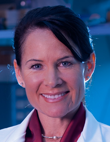
Elizabeth Loboa is an Associate Professor and Associate Chair of the Joint Department of Biomedical Engineering at UNC-Chapel Hill and NC State University; and Associate Professor of Materials Science and Engineering at NCSU. She is also the founding Director of the Cell Mechanics Laboratory at NCSU. Dr. Loboa received her M.S. and Ph.D. in Biomechanical Engineering and Mechanical Engineering, respectively, from Stanford University. Research in her laboratory is focused on: 1) empirical and computational approaches to quantitatively determine and deliver biomimetic mechanical, electrical, and material stimuli to human stem cells for functional tissue engineering of musculoskeletal tissues; and, 2) nanofibrous “smart bandages” as controlled release systems for wound healing and tissue engineering applications requiring antimicrobial, antibacterial, and/or anti-inflammatory treatment. Her research has been funded by the Nonwovens Cooperative Research Center, North Carolina Biotechnology Center, NSF, and the NIH. She is the recipient of many awards, including the NCSU Chancellor’s Innovation Award (2011), and the NCSU Faculty Scholar Award (2012).
 Prabhas Moghe is a Distinguished Professor of Biomedical Engineering of Chemical and Biochemical Engineering at Rutgers University. Dr. Moghe received his Ph.D. in Chemical Engineering from the University of Minnesota in 1993, and trained on a postdoctoral fellowship in Bioengineering at Harvard Medical School from 1993 to 1995. Dr. Moghe joined the Rutgers faculty in 1995. Dr. Moghe holds several research leadership roles including Vice-Chair of Biomedical Engineering, PI and Director on the NSF-sponsored IGERT program at Rutgers on Integratively Engineered Biointerfaces (2003-) and Integrated Science & Engineering of Stem Cells (2008-13); PI/Director of a Nanoscale Interdisciplinary Research Team (NIRT) (2006-2012); Director of Rutgers-UMDNJ Joint Graduate Program in Biomedical Engineering (2007-2010); CORE PI for NIH-sponsored Integrated Research Center on Polymeric Biomaterials (2003-2018); School of Engineering Diversity Champion for the NE-AGEP (2005-). He was appointed as graduate faculty member of the Graduate Program in Cell and Developmental Biology (Molecular Biosciences) at Rutgers in 1998. Since 2008, Dr. Moghe has been Adjunct Professor of Surgery, Division of Bioengineering, Robert Wood Johnson Medical School.
Prabhas Moghe is a Distinguished Professor of Biomedical Engineering of Chemical and Biochemical Engineering at Rutgers University. Dr. Moghe received his Ph.D. in Chemical Engineering from the University of Minnesota in 1993, and trained on a postdoctoral fellowship in Bioengineering at Harvard Medical School from 1993 to 1995. Dr. Moghe joined the Rutgers faculty in 1995. Dr. Moghe holds several research leadership roles including Vice-Chair of Biomedical Engineering, PI and Director on the NSF-sponsored IGERT program at Rutgers on Integratively Engineered Biointerfaces (2003-) and Integrated Science & Engineering of Stem Cells (2008-13); PI/Director of a Nanoscale Interdisciplinary Research Team (NIRT) (2006-2012); Director of Rutgers-UMDNJ Joint Graduate Program in Biomedical Engineering (2007-2010); CORE PI for NIH-sponsored Integrated Research Center on Polymeric Biomaterials (2003-2018); School of Engineering Diversity Champion for the NE-AGEP (2005-). He was appointed as graduate faculty member of the Graduate Program in Cell and Developmental Biology (Molecular Biosciences) at Rutgers in 1998. Since 2008, Dr. Moghe has been Adjunct Professor of Surgery, Division of Bioengineering, Robert Wood Johnson Medical School.
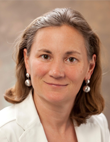
Laura Niklason is a Professor at Yale University in Biomedical Engineering and Anesthesia. Dr. Niklason’s research focuses primarily on regenerative strategies for cardiovascular and lung tissues, and the impact of biomechanical and biochemical signals of tissue differentiation and development. In 2005, Dr. Niklason founded a biotechnology company (“Humacyte, Inc.”), which is working to bring engineered tissue replacements to patients. Niklason’s lab was also the first to describe the engineering of whole lung tissue that could exchange gas in vivo, and this work was cited in 2010 as one of the top 50 most important inventions of the year by Time Magazine.
 G. Elizabeth Pluhar earned an M.S. from Northern Illinois University, D.V.M. from Oregon State University, a second M.S. from Washington State University and Ph.D. in comparative orthopaedics from the University of Wisconsin-Madison. She completed an internship at the Animal Medical Center in N.Y. and surgery residency at Washington State University and is a Diplomate of the American College of Veterinary Surgeons. Dr. Pluhar has received the William Harris Award from the Orthopaedic Research Society and the Mark of Excellence Award from the University of Minnesota. She is involved with several professional organizations, including the Society for Neuro-Oncology, the Orthopaedic Research Society, the American College of Veterinary Surgeons, and the Veterinary Orthopedic Society. Her research interests include development of bone graft substitutes, animal models of disease and immunotherapies for brain tumors.
G. Elizabeth Pluhar earned an M.S. from Northern Illinois University, D.V.M. from Oregon State University, a second M.S. from Washington State University and Ph.D. in comparative orthopaedics from the University of Wisconsin-Madison. She completed an internship at the Animal Medical Center in N.Y. and surgery residency at Washington State University and is a Diplomate of the American College of Veterinary Surgeons. Dr. Pluhar has received the William Harris Award from the Orthopaedic Research Society and the Mark of Excellence Award from the University of Minnesota. She is involved with several professional organizations, including the Society for Neuro-Oncology, the Orthopaedic Research Society, the American College of Veterinary Surgeons, and the Veterinary Orthopedic Society. Her research interests include development of bone graft substitutes, animal models of disease and immunotherapies for brain tumors.
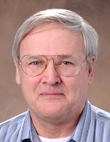 Kurt Pricer has over 38 years of experience in the medical field in production, R&D, training, engineering, process design and development, maintenance, and disaster recovery. He is the Associate Director for Sterilization Operations at Johnson & Johnson Sterility Assurance. Mr. Pricer is currently leading the Gas and Heat Sterilization Lab and the Analytical Chemistry Lab at J&J. His team is designing experiments to validate new product sterilization processes and sterilization cycles using Dry Heat, Steam, EO, and Hydrogen Peroxide. He has worked for the US Army, Ethicon, Vistakon, Cordis, and Cilag. Mr. Pricer has two patents for sterilization systems and is co-author of work on Ethylene Oxide Concentration in AAMI Industrial Sterilization publication. Her received his B.S. degree in Bio-Medical Engineering from the University of Oklahoma.
Kurt Pricer has over 38 years of experience in the medical field in production, R&D, training, engineering, process design and development, maintenance, and disaster recovery. He is the Associate Director for Sterilization Operations at Johnson & Johnson Sterility Assurance. Mr. Pricer is currently leading the Gas and Heat Sterilization Lab and the Analytical Chemistry Lab at J&J. His team is designing experiments to validate new product sterilization processes and sterilization cycles using Dry Heat, Steam, EO, and Hydrogen Peroxide. He has worked for the US Army, Ethicon, Vistakon, Cordis, and Cilag. Mr. Pricer has two patents for sterilization systems and is co-author of work on Ethylene Oxide Concentration in AAMI Industrial Sterilization publication. Her received his B.S. degree in Bio-Medical Engineering from the University of Oklahoma.
 Mahendra Surendra Rao brings decades of experience in stem cell science and business development to NYSCF's mission to translate stem cell research into cures. Dr. Rao, who holds an MD degree and a PhD in developmental neurobiology, is one of the nation’s most prominent stem cell scientists. He has over twenty years of experience in all aspects of the stem cell field including government, academia, and business. Before joining NYSCF, Dr. Rao was the Director of the NIH Center for Regenerative Medicine since its founding in 2010. Prior to joining the NIH, Dr. Rao spent six years as the vice president of Regenerative Medicine at Life Technologies, Inc. (now Thermo Fisher Scientific) after serving as the chief of Neurosciences at the National Institute on Aging and co-founding Q Therapeutics, a neural stem cell company based in Utah. Dr. Rao is tenured at the University of Utah School of Medicine in both Neurobiology and Anatomy and has over twenty submitted and ten issued patents.
Mahendra Surendra Rao brings decades of experience in stem cell science and business development to NYSCF's mission to translate stem cell research into cures. Dr. Rao, who holds an MD degree and a PhD in developmental neurobiology, is one of the nation’s most prominent stem cell scientists. He has over twenty years of experience in all aspects of the stem cell field including government, academia, and business. Before joining NYSCF, Dr. Rao was the Director of the NIH Center for Regenerative Medicine since its founding in 2010. Prior to joining the NIH, Dr. Rao spent six years as the vice president of Regenerative Medicine at Life Technologies, Inc. (now Thermo Fisher Scientific) after serving as the chief of Neurosciences at the National Institute on Aging and co-founding Q Therapeutics, a neural stem cell company based in Utah. Dr. Rao is tenured at the University of Utah School of Medicine in both Neurobiology and Anatomy and has over twenty submitted and ten issued patents.
 Charles Roth is Professor of Biomedical Engineering and of Chemical & Biochemical Engineering at Rutgers, The State University of New Jersey. Dr. Roth’s main research interests are in the areas of nanomedicine, with an emphasis on gene silencing technologies, targeted delivery for therapeutics and imaging, and engineering approaches to cancer. Dr. Roth has initiated several new programs at Rutgers, including the Biomedical Engineering Honors Academy and an NSF-funded REU Site Program in Cellular Bioengineering: From Biomaterials to Stem Cells, which will train its fifth cohort in summer 2014. He currently serves as the Graduate Program Director for Chemical and Biochemical Engineering.
Charles Roth is Professor of Biomedical Engineering and of Chemical & Biochemical Engineering at Rutgers, The State University of New Jersey. Dr. Roth’s main research interests are in the areas of nanomedicine, with an emphasis on gene silencing technologies, targeted delivery for therapeutics and imaging, and engineering approaches to cancer. Dr. Roth has initiated several new programs at Rutgers, including the Biomedical Engineering Honors Academy and an NSF-funded REU Site Program in Cellular Bioengineering: From Biomaterials to Stem Cells, which will train its fifth cohort in summer 2014. He currently serves as the Graduate Program Director for Chemical and Biochemical Engineering.

Jean E. Schwarzbauer is Professor of Molecular Biology at Princeton University. She has a B.S. in chemistry and received her Ph.D. in molecular biology from the University of Wisconsin-Madison. After a post-doctoral fellowship at MIT, she joined Princeton University as an Assistant Professor in 1986. Dr. Schwarzbauer is also a member of the New Jersey Center for Biomaterials, a core faculty member of the Center’s NIH Tissue Engineering training program, and a member of the Cancer Institute of New Jersey. She currently serves as President of the American Society for Matrix Biology, is on the editorial boards of several major cell biology journals, and recently completed two terms as Secretary of the American Society for Cell Biology. Dr. Schwarzbauer has organized conferences in matrix biology, cell biology, and bioengineering, and she has served on various advisory boards as well as national and international grant review panels. At Princeton University, Dr. Schwarzbauer lectures in cell biology courses and conducts NIH-funded research in the areas of tissue repair and regeneration, cancer, and stem cell biology.
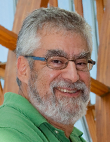 Michael V. Sefton is University Professor and Michael E. Charles Professor in the Department of Chemical Engineering and Applied Chemistry and the Institute of Biomaterials and Biomedical Engineering, University of Toronto. He was educated at the University of Toronto (B.A.Sc., 1971) and at M.I.T. (Sc.D., 1974) and has been at the University of Toronto since 1974. To commemorate the end of the 20th century, He was one of 20 given a Century of Achievement Award by the CSChE in 1999. He was Director of the Institute of Biomaterials and Biomedical Engineering at the University of Toronto from 1999-2005 and President of the US Society For Biomaterials in 2006. He received the Albright and Wilson Americas Award of CSChE in 1988. He was named University Professor in 2003 and elected a Fellow of the Royal Society of Canada in 2005. He has also received the Founders Award of the US Society For Biomaterials and the Killam Prize in Engineering of the Canada Council. Last year he received the Acta Biomaterialia Gold award.
Michael V. Sefton is University Professor and Michael E. Charles Professor in the Department of Chemical Engineering and Applied Chemistry and the Institute of Biomaterials and Biomedical Engineering, University of Toronto. He was educated at the University of Toronto (B.A.Sc., 1971) and at M.I.T. (Sc.D., 1974) and has been at the University of Toronto since 1974. To commemorate the end of the 20th century, He was one of 20 given a Century of Achievement Award by the CSChE in 1999. He was Director of the Institute of Biomaterials and Biomedical Engineering at the University of Toronto from 1999-2005 and President of the US Society For Biomaterials in 2006. He received the Albright and Wilson Americas Award of CSChE in 1988. He was named University Professor in 2003 and elected a Fellow of the Royal Society of Canada in 2005. He has also received the Founders Award of the US Society For Biomaterials and the Killam Prize in Engineering of the Canada Council. Last year he received the Acta Biomaterialia Gold award.
 Molly Shoichet is Professor of Chemical Engineering & Applied Chemistry, Chemistry and Biomaterials & Biomedical Engineering and holds the Tier 1 Canada Research Chair in Tissue Engineering at the University of Toronto. She has published over 480 papers, patents and abstracts and has given over 300 lectures worldwide. She currently leads a laboratory of 25 and has graduated 130 researchers. She founded two spin-off companies, is actively engaged in translational research and science outreach. Dr. Shoichet is the recipient of many prestigious distinctions and the only person to be a Fellow of Canada’s 3 National Academies: Canadian Academy of Sciences of the Royal Society of Canada, Canadian Academy of Engineering, and Canadian Academy of Health Sciences. Dr. Shoichet holds the Order of Ontario, Ontario’s highest honour and is a Fellow of the American Association for the Advancement of Science. Dr. Shoichet received her SB from the Massachusetts Institute of Technology (1987) and her PhD from the University of Massachusetts, Amherst in Polymer Science and Engineering (1992).
Molly Shoichet is Professor of Chemical Engineering & Applied Chemistry, Chemistry and Biomaterials & Biomedical Engineering and holds the Tier 1 Canada Research Chair in Tissue Engineering at the University of Toronto. She has published over 480 papers, patents and abstracts and has given over 300 lectures worldwide. She currently leads a laboratory of 25 and has graduated 130 researchers. She founded two spin-off companies, is actively engaged in translational research and science outreach. Dr. Shoichet is the recipient of many prestigious distinctions and the only person to be a Fellow of Canada’s 3 National Academies: Canadian Academy of Sciences of the Royal Society of Canada, Canadian Academy of Engineering, and Canadian Academy of Health Sciences. Dr. Shoichet holds the Order of Ontario, Ontario’s highest honour and is a Fellow of the American Association for the Advancement of Science. Dr. Shoichet received her SB from the Massachusetts Institute of Technology (1987) and her PhD from the University of Massachusetts, Amherst in Polymer Science and Engineering (1992).
 Douglas H. Smith serves as Director of the Center for Brain Injury and Repair (CBIR) and is the Robert A. Groff Endowed Professor and Vice Chairman for Research and Education in Neurosurgery at the University of Pennsylvania. Penn's multidisciplinary CBIR includes over 25 principal investigators and their laboratory staff collectively studying mechanisms, diagnosis and potential treatments of traumatic brain injury (TBI). Dr. Smith is also director of a multi-center U.S. NIH program grant on mild traumatic brain injury as well as director of multi-investigator NIH and U.S. Department of Defense grants on TBI and neurodegeneration. Demonstrating his dedication to teaching, Dr. Smith additionally oversees an NIH training grant to support post- and pre-doctoral fellows studying brain injury. The research of his laboratory has primarily focused on the effects of mechanical stretch of axons that results in either damage or growth. They have found fundamental mechanical mechanisms that underlie selective injury to axons in the white matter during TBI. His group has also identified the aberrant genesis and accumulation of proteins in the damaged axons after TBI that can lead to neurodegenerative changes similar to those found in Alzheimer’s disease. In addition, Dr. Smith’s laboratory has also recently discovered that slow continuous stretching of axon tracts in culture can stimulate enormous growth, creating transplantable living nervous tissue constructs. These tissue engineered constructs have shown promise for repairing large lesions in the nervous system. These collective efforts have resulted in over 160 published reports.
Douglas H. Smith serves as Director of the Center for Brain Injury and Repair (CBIR) and is the Robert A. Groff Endowed Professor and Vice Chairman for Research and Education in Neurosurgery at the University of Pennsylvania. Penn's multidisciplinary CBIR includes over 25 principal investigators and their laboratory staff collectively studying mechanisms, diagnosis and potential treatments of traumatic brain injury (TBI). Dr. Smith is also director of a multi-center U.S. NIH program grant on mild traumatic brain injury as well as director of multi-investigator NIH and U.S. Department of Defense grants on TBI and neurodegeneration. Demonstrating his dedication to teaching, Dr. Smith additionally oversees an NIH training grant to support post- and pre-doctoral fellows studying brain injury. The research of his laboratory has primarily focused on the effects of mechanical stretch of axons that results in either damage or growth. They have found fundamental mechanical mechanisms that underlie selective injury to axons in the white matter during TBI. His group has also identified the aberrant genesis and accumulation of proteins in the damaged axons after TBI that can lead to neurodegenerative changes similar to those found in Alzheimer’s disease. In addition, Dr. Smith’s laboratory has also recently discovered that slow continuous stretching of axon tracts in culture can stimulate enormous growth, creating transplantable living nervous tissue constructs. These tissue engineered constructs have shown promise for repairing large lesions in the nervous system. These collective efforts have resulted in over 160 published reports.
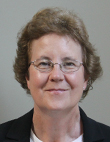 Cathryn Sundback is an Assistant Professor at Harvard Medical School, Director of the Laboratory for Tissue Engineering and Organ Fabrication at the Massachusetts General Hospital, and the Director of the Biomaterials Core within the Center for Regenerative Medicine at the Massachusetts General Hospital. Dr. Sundback’s research focuses on the application of biomaterials for tissue engineering of facial and limb tissues, particularly peripheral nerve, skeletal muscle, cartilage, and bone. She is currently developing engineered skeletal muscle and cartilage tissues as clinically translatable models and as in vitro models for drug discovery.
Cathryn Sundback is an Assistant Professor at Harvard Medical School, Director of the Laboratory for Tissue Engineering and Organ Fabrication at the Massachusetts General Hospital, and the Director of the Biomaterials Core within the Center for Regenerative Medicine at the Massachusetts General Hospital. Dr. Sundback’s research focuses on the application of biomaterials for tissue engineering of facial and limb tissues, particularly peripheral nerve, skeletal muscle, cartilage, and bone. She is currently developing engineered skeletal muscle and cartilage tissues as clinically translatable models and as in vitro models for drug discovery.
 Menas Vratsanos received a B.S. in Chemical Engineering from Columbia University and an M.S. and Ph.D. in Polymer Science and Engineering from the University of Massachusetts in Amherst. After completing his Ph.D. Menas joined Air Products and Chemicals in 1987 where he worked on a variety of polymer-related projects with a focus on developing structure-property relationships. More recently, at Air Products he managed the Polymer Material Analysis and High Throughput Experimentation groups. In July 2010 he transitioned to Intertek and is currently a Research Fellow. His responsibilities are primarily in the area of problem solving industrial polymer problems. Over his career he has published numerous papers and holds 8 patents.
Menas Vratsanos received a B.S. in Chemical Engineering from Columbia University and an M.S. and Ph.D. in Polymer Science and Engineering from the University of Massachusetts in Amherst. After completing his Ph.D. Menas joined Air Products and Chemicals in 1987 where he worked on a variety of polymer-related projects with a focus on developing structure-property relationships. More recently, at Air Products he managed the Polymer Material Analysis and High Throughput Experimentation groups. In July 2010 he transitioned to Intertek and is currently a Research Fellow. His responsibilities are primarily in the area of problem solving industrial polymer problems. Over his career he has published numerous papers and holds 8 patents.
 Gordana Vunjak-Novakovic is the Mikati Foundation Professor of Biomedical Engineering and Medical Sciences at Columbia University. The focus of her research is on engineering functional human tissues for regenerative medicine, stem cell research and modeling of disease. She is a Fellow of the American Institute for Medical and Biological Engineering, a Fellow of the Biomedical Engineering Society, a founding Fellow of the Tissue Engineering and Regenerative Medicine Society, and a member of the Women in Technology International Hall of Fame, New York Academy of Science, Academia Europaea, Serbian Academy of Sciences and Arts, and the National Academy of Engineering.
Gordana Vunjak-Novakovic is the Mikati Foundation Professor of Biomedical Engineering and Medical Sciences at Columbia University. The focus of her research is on engineering functional human tissues for regenerative medicine, stem cell research and modeling of disease. She is a Fellow of the American Institute for Medical and Biological Engineering, a Fellow of the Biomedical Engineering Society, a founding Fellow of the Tissue Engineering and Regenerative Medicine Society, and a member of the Women in Technology International Hall of Fame, New York Academy of Science, Academia Europaea, Serbian Academy of Sciences and Arts, and the National Academy of Engineering.
 Murty Vyakarnam is the Director of Global R&D at LifeScience Polymers, a GBU of Lubrizol Corporation, where he is responsible for managing technology, innovation and strategy for the business unit covering market segments - medical devices, oral solid/ liquid dosage pharma excipients, and implantable drug delivery systems. He previously served as the Chief Operating Officer for NIH's RESBIO program and New Ventures at the New Jersey Center for Biomaterials. Prior to that he was at Johnson and Johnson for nearly 17 years where his latest position was as Director of R&D at Advanced Technologies and Regenerative Medicine within J&J's Global Surgery Group with general management responsibility of two functional groups and leadership for a portfolio of growth oriented product development projects with J&J Operating Companies.
Murty Vyakarnam is the Director of Global R&D at LifeScience Polymers, a GBU of Lubrizol Corporation, where he is responsible for managing technology, innovation and strategy for the business unit covering market segments - medical devices, oral solid/ liquid dosage pharma excipients, and implantable drug delivery systems. He previously served as the Chief Operating Officer for NIH's RESBIO program and New Ventures at the New Jersey Center for Biomaterials. Prior to that he was at Johnson and Johnson for nearly 17 years where his latest position was as Director of R&D at Advanced Technologies and Regenerative Medicine within J&J's Global Surgery Group with general management responsibility of two functional groups and leadership for a portfolio of growth oriented product development projects with J&J Operating Companies.
 Pamela Crotty Yelick is a Professor, at Tufts University, Boston MA, where she is the Director of the Division of Craniofacial and Molecular Genetics in the Department of Oral and Maxillofacial Pathology. Dr. Yelick holds adjunct appointments in the Departments of Bioengineering, Genetics, and Molecular and Cell Biology. Dr. Yelick received her B.A. in Biology from Smith College, Northampton MA in 1979, and her Ph.D. in Molecular Biology from Tufts University in 1989. She received her postdoctoral training at the Dana Farber Cancer Institute, Boston MA and the Harvard Biological Laboratories, Cambridge MA. Dr. Yelick’s major research interests are molecular genetic analyses of craniofacial cartilage, bone, and tooth development. Her research focuses on manipulating mammalian postnatal dental stem cells for whole tooth tissue engineering applications, and the zebrafish, Danio rerio, as a model for craniofacial development and tooth regeneration. She has received grant support from multiple funding agencies including RO3, R21, R41 and RO1 support from NIH/NIDCR, and Proof of Principle, and Application Development Awards from the Center for Innovative Medicine and Innovative Technologies (CIMIT).
Pamela Crotty Yelick is a Professor, at Tufts University, Boston MA, where she is the Director of the Division of Craniofacial and Molecular Genetics in the Department of Oral and Maxillofacial Pathology. Dr. Yelick holds adjunct appointments in the Departments of Bioengineering, Genetics, and Molecular and Cell Biology. Dr. Yelick received her B.A. in Biology from Smith College, Northampton MA in 1979, and her Ph.D. in Molecular Biology from Tufts University in 1989. She received her postdoctoral training at the Dana Farber Cancer Institute, Boston MA and the Harvard Biological Laboratories, Cambridge MA. Dr. Yelick’s major research interests are molecular genetic analyses of craniofacial cartilage, bone, and tooth development. Her research focuses on manipulating mammalian postnatal dental stem cells for whole tooth tissue engineering applications, and the zebrafish, Danio rerio, as a model for craniofacial development and tooth regeneration. She has received grant support from multiple funding agencies including RO3, R21, R41 and RO1 support from NIH/NIDCR, and Proof of Principle, and Application Development Awards from the Center for Innovative Medicine and Innovative Technologies (CIMIT).
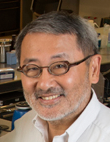 Wise Young is the Director of the W.M. Keck Center for Collaborative Neuroscience and a professor at Rutgers University. He is recognized as one of the world's outstanding neuroscientists. He obtained a bachelor of arts degree from Reed College, a doctorate from the University of Iowa and a medical degree from Stanford University. After a surgery internship at New York University and Bellevue Medical Center, he joined the neurosurgery department at NYU. In 1984, he became director of neurosurgery research. In 1997, as part of Rutgers' commitment to the future, Dr. Young was recruited to establish and direct a world-class center for collaborative neuroscience. A well-known leader in spinal cord injury research, he was part of the team that discovered and established high-dose methylprednisolone (MP) as the first effective therapy for spinal cord injuries. In August 2001, TIME Magazine named Dr. Young as ‘America’s Best’ in the field of spinal cord injury research. In 2005, he was the first researcher elected to the Spinal Cord Injury Hall of Fame. Dr. Young was appointed to the Richard H. Shindell Chair in Neuroscience in 2006 by the Rutgers University Board of Governors.
Wise Young is the Director of the W.M. Keck Center for Collaborative Neuroscience and a professor at Rutgers University. He is recognized as one of the world's outstanding neuroscientists. He obtained a bachelor of arts degree from Reed College, a doctorate from the University of Iowa and a medical degree from Stanford University. After a surgery internship at New York University and Bellevue Medical Center, he joined the neurosurgery department at NYU. In 1984, he became director of neurosurgery research. In 1997, as part of Rutgers' commitment to the future, Dr. Young was recruited to establish and direct a world-class center for collaborative neuroscience. A well-known leader in spinal cord injury research, he was part of the team that discovered and established high-dose methylprednisolone (MP) as the first effective therapy for spinal cord injuries. In August 2001, TIME Magazine named Dr. Young as ‘America’s Best’ in the field of spinal cord injury research. In 2005, he was the first researcher elected to the Spinal Cord Injury Hall of Fame. Dr. Young was appointed to the Richard H. Shindell Chair in Neuroscience in 2006 by the Rutgers University Board of Governors.